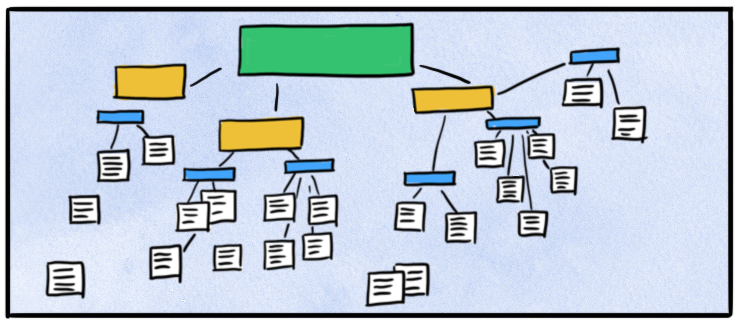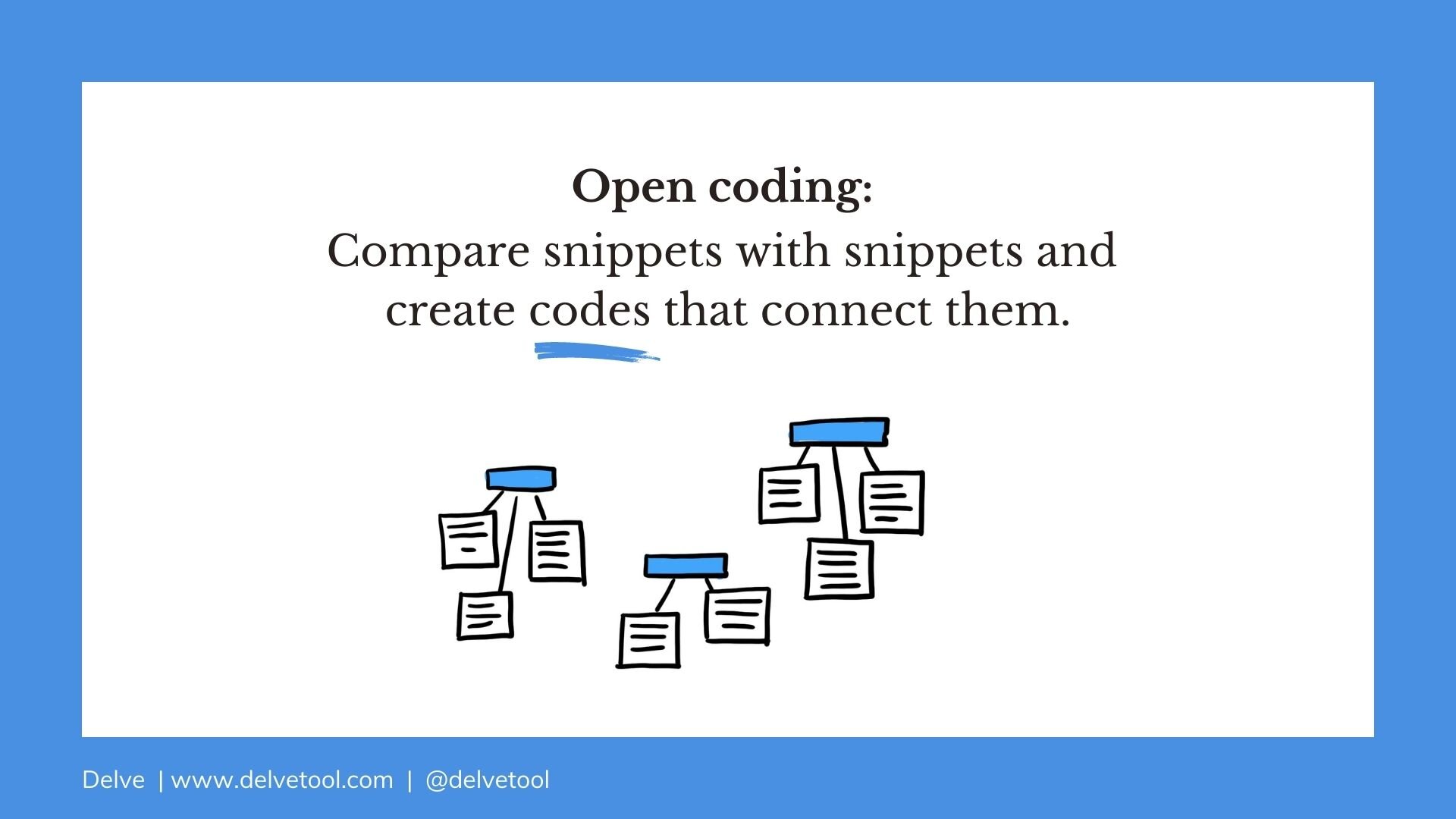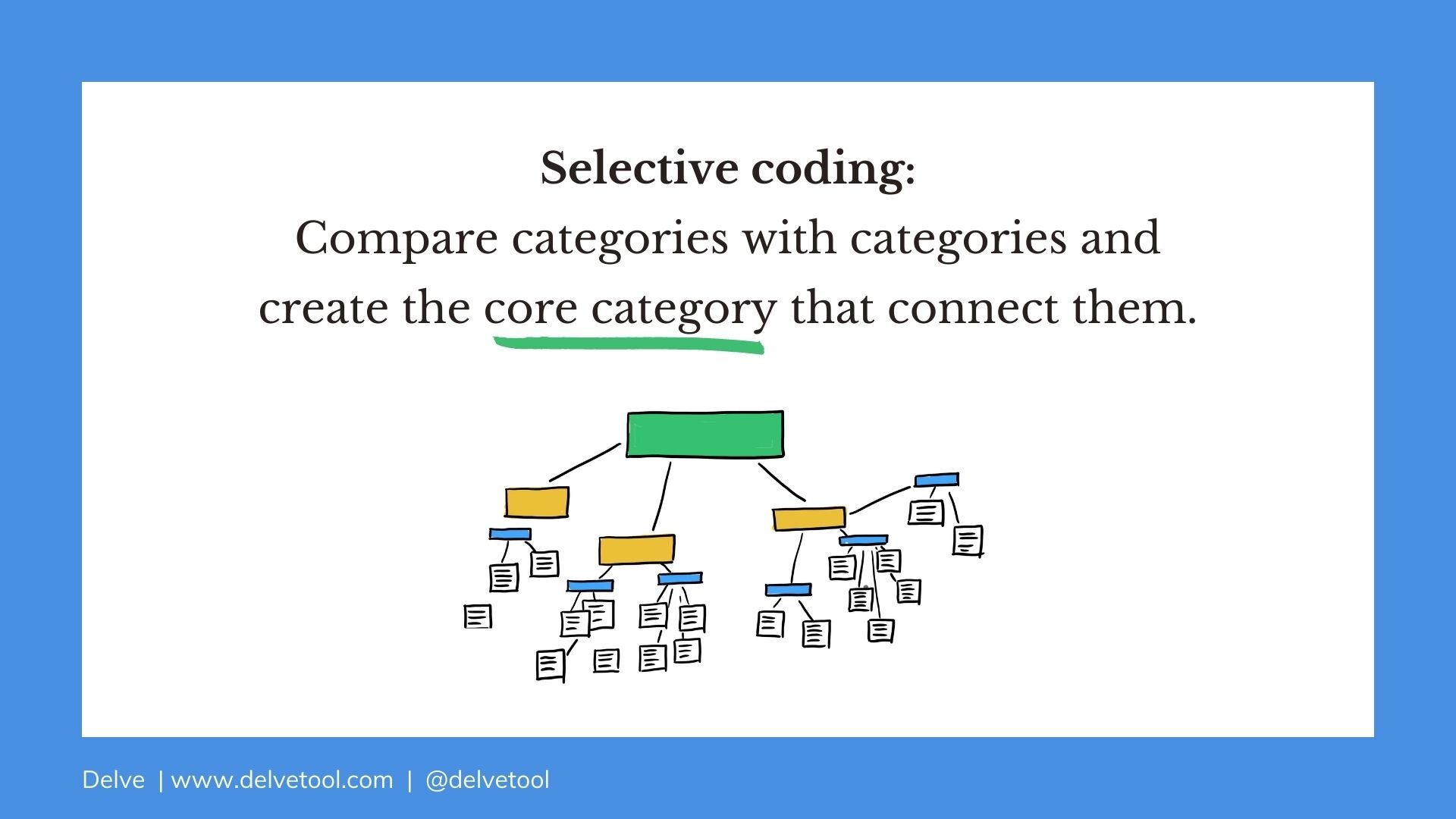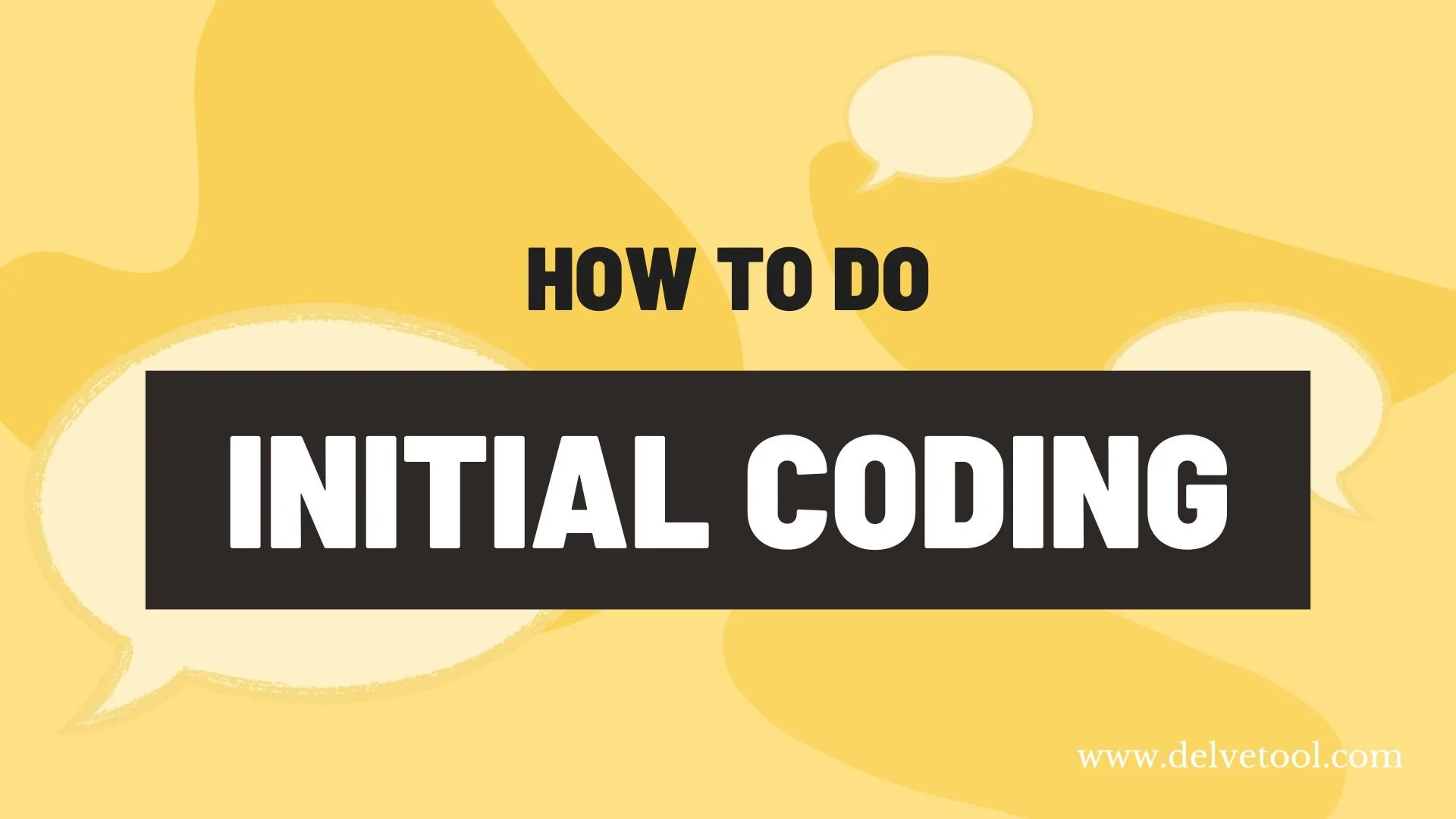What is Constant Comparative Method?
What is Constant Comparative Method
Constant comparative method is a process developed by Glaser and Strauss and used in grounded theory, where you sort and organize excerpts of raw data into groups according to attributes, and organize those groups in a structured way to formulate a new theory.
If you’ve ever sorted puzzle pieces by shape, separated out Skittles by flavor, or organized socks to be separated from shirts in your closet, you’ve already practiced a process similar to constant comparative method.
How do you practice constant comparative method in grounded theory?
Constant comparative method is tightly integrated with the entire process of grounded theory analysis. If you’re unfamiliar with grounded theory, check out our Practical Guide to Grounded Theory before diving into the next section.
Constant comparative method in open coding
Open coding is when you take raw data such as interview transcripts, and break them up into individual snippets.
Then, you practice constant comparative method by comparing snippets with snippets, and create codes to connect snippets together.
Constant comparative method in axial coding
After doing open coding, axial coding is when you look for connections between codes.
You compare codes with codes, and create categories that connect codes together.
Constant comparative method in selective coding
After axial coding, you do selective coding, where you look for connections between categories.
You compare categories with categories, and create a core category to connect them.
Try Delve, Software for Qualitative Coding
Online software such as Delve can help streamline how you’re coding your qualitative coding. Try a 14 day free trial of Delve.
How do you make comparisons?
As you make comparisons between data (whether you’re comparing snippets, codes, categories, or all three), the data you’re comparing will generally do one of three things: contradict, expand upon, or support your existing data (whether it’s snippets, codes, or categories). Here’s what you should consider in each scenario:
Contradiction: If your new data contradicts existing codes or categories, this may be a sign that you need to adjust that code or category or change it. It likely also means that you need to go back and conduct more rounds of data collection through theoretical sampling to help explain the contradiction. Read more about how to handle contradictions in our article on negative case analysis.
Expansion: If your new data expands upon your codes or categories, either by adding more description or explaining more facets of your code or categories, this is a good sign that you are continuing to learn more and it means that you should continue to collect and analyze data until your new snippets simply support your codes and categories rather than expand upon them.
Support: If your new data generally supports your codes and categories without adding additional information, this means that you may have reached theoretical saturation, which is the point at which more data does not contribute any additional insight into your codes and you can move onto a later stage of your research.
In grounded theory, once you establish a category, you don’t need to go back and code every single excerpt that refers to that category. However, if you come across an excerpt that contradicts a category, this may open the doors to expanding upon or changing your category.
See how constant comparative analysis works in grounded theory
Watch this 30 minute webinar
Try Delve Qualitative Analysis Tool
The Delve qualitative analysis tool can streamline the code for your qualitative data and help you to practice peer debriefing. Start a free trial of Delve today!
References:
Glaser, B., & Strauss, A. (1967). The Discovery of Grounded Theory: Strategies for Qualitative Research. Mill Valley, CA: Sociology Press.
Dr. Moerman. (2016, September 11). 5.5 Grounded theory | Qualitative Methods | Qualitative Analysis | UvA [Video], YouTube. https://youtu.be/Y6f1GHjD5JQ
Cite this blog post:
Delve, Ho, L., & Limpaecher, A. (2021a, October 11). What is Constant Comparative Method? https://delvetool.com/blog/ccm













